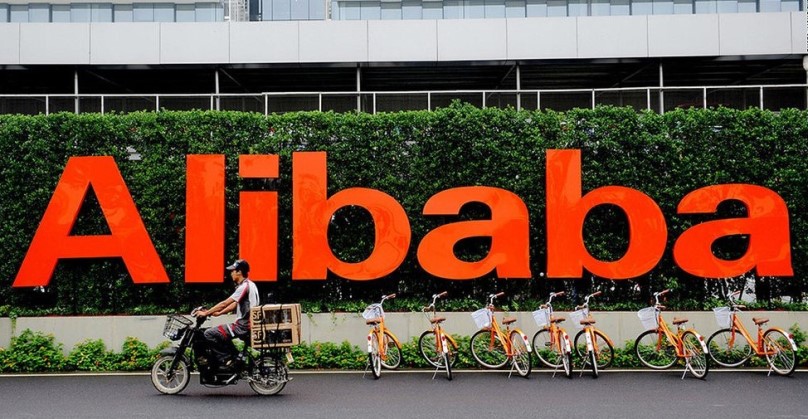
U.S. tech stocks have been on a tear so far in 2023, with the ‘Magnificent Seven’ accounting for a vast majority of all stock market gains this year. Arguably, this is because of the boom in artificial intelligence, that has persisted despite worries about an economic recession, and uncertainty around central bank interest rate decisions.
But can this red-hot AI theme apply to sluggish Chinese equities the same way it did in the U.S.? Not yet, says Kai Wang, senior equity analyst at Morningstar.
There are a few problems with the investment theme in Chinese companies as Wang says: “There’s a lack of clarity on how artificial intelligence in China will be monetized, regulated, and publicly consumed.”
In Wang’s view, the field of generative AI comes with risks in both the input and output aspects.
How Chip Politics Affect AI Development
The semiconductor chip determines the speed and prowess of the generative AI. This could prove to be a problem, as for years now, China has been under increasing scrutiny while obtaining semiconductor chips from other countries.
Measures are being taken as part of a broader initiative to prevent China from utilizing advanced technology to bolster its military capabilities. Additional rules have been imposed to bar sales of chipmaking equipment to Chinese companies.
China isn’t only on the receiving end of chip export restrictions, as it has announced plans to strike back. From August, China will restrict exports of eight gallium products and six germanium products.
Wang says: “Investors should not overlook a scenario where a potential fallout happens when chip restrictions or regulations become highly detrimental to the developmental progress of the foundational AI industry, which would further dilute the incremental value.”
Will Censorship Filter Out Good Output Too?
The output is another concern, says Wang, who is monitoring what the regulatory landscape will be like for AI language models.
“Chinese companies could see headwinds in complying with censorship and the Chinese government’s ideology in their foundational model,” he says.
He continues: “Our contacts indicate that there may be some pressure to maintain a Chinese ideology for the foundational AI products. This should not be surprising given regulatory policies in the country regarding media and other information-type services and products.”
He thinks, from a technical perspective, it will be difficult for foundational AI models to filter out unwanted answers though. “Generating results that are factually incorrect or unrelated to the given context, or ‘hallucination’ are considered a challenge in developing AI models… As a result, we are unsure whether eventual regulation will affect the performance of AI models, or whether the additional filters mean that there will be greater inference costs to run the models,” Wang says.
According to Wang, all the generative language models developed by Chinese companies are still undergoing mass testing for filtered content. “Baidu is one of them and they indicated that despite mass testing, they have not found a conclusive solution [to filtering content] yet.”
At this point, Wang sees many AI companies in China being in a tough spot. “They cannot afford to lag too far behind the U.S. in AI. On the one hand, they hope to release their foundational AI models as soon as possible. On the other hand, though, ensuring there are no ideological mistakes remains the most important caveat for these companies.”
Revenue Contribution Will Be Small
Even when these companies have sorted out those challenges and when the Chinese officials give more regulatory clarity, Wang thinks foundational AI will more likely be a complementary business to the core operations of contenders including Baidu and Alibaba.
But, to an extent, the technology will be able to bring a positive impact on revenue, likely in their cloud oradvertising businesses.
“This could be from a growing client base outside of its usual scope, who are willing to pay for generative AI that can enhance existing products or improve operating efficiency. Improved user experience for their consumer end-users products and services could also contribute to an uptick in revenue growth,” Wang explains. However, any increase in their fair value estimates will not be significant.
“First, we estimate revenue contribution from generative AI to be relatively small compared with the core businesses of these companies. We view foundational AI more as a complementary enhancement to existing core competencies rather than a standalone business itself,” Wang says.
“Second, other internet companies, including resource-heavy Tencent and Bytedance, could upgrade their products and services with proprietary or third-party foundational AI as well in the long run, which should increase competition,” he adds.
At present, his revenue model currently projects that the foundational AI model can add about 7% to 9% to the existing fair value estimate of US$ 183 for Baidu and 4% to the current fair value estimate of US$ 177 for Alibaba down the road. Given the lack of details on potential regulations, chip restrictions, and the long-term monetization model, Wang has yet to incorporate the valuation of Baidu’s foundational AI products into the fair value estimate.
What’s In the Market Now?
In February 2023, Robin Li, CEO of Baidu confirmed that the firm will develop its maiden ChatGPT-style bot, and the company wants to integrate the technology into its existing product offerings.
“After speaking with management, we expect Baidu’s main strategy is to incorporate generative AI into its cloud business as its main strategy, and ERNIE will empower its cloud business to use generative AI in its services to cater to new clients,” Wang says.
Alibaba Cloud launched its own version of ChatGPT, Tongyi Qianwen, in April this year. Similarly, the language mode is expected to be integrated into digital assistants as well as services for corporate cloud clients.
Wang believes that the first movers, Baidu’s ERNIE and Alibaba’s Tongyi Qianwen, will benefit the most in the near term. Over time, investors should caution that, as there will be more large-scale generative AI models launched by other tech peers, this first-mover advantage will fade.












.png)


.jpg)





